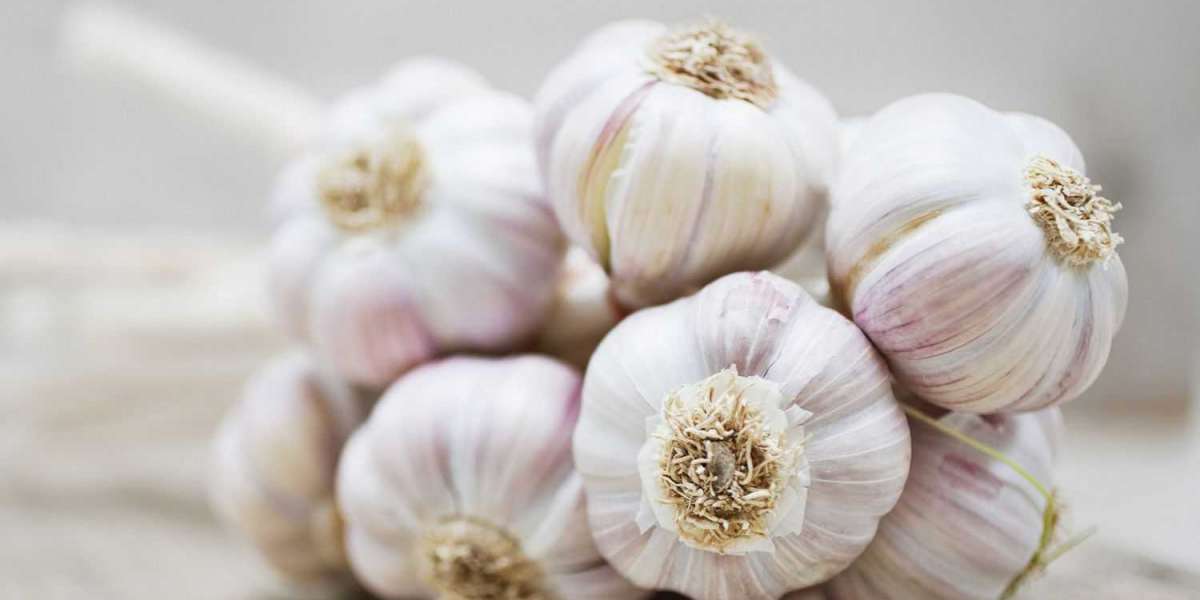Garlic is well-known for its cardioprotective properties. Its sulfides aid in the management of cholesterol and pulse, as well as vein enlargement. They also help with removing plaque in the corridors. Three uncooked cloves per day when fasting reduces the risk of respiratory failure. Fildena 200 and Malegra 200 can also boost immunity and relax veins.
Garlic helps to decrease blood pressure.
Garlic decreases circulatory strain by blocking two key flagging pathways in the body. As a result of these processes, nitric oxide and hydrogen sulfide are produced. Both are essential cofactors in the physiological function of garlic. However, the particular component of garlic's pulse-lowering actions is unknown.
Several research has been undertaken to look into the potential benefits of garlic for hypertension. According to a single study, garlic supplements reduced systolic blood pressure quicker than control in persons with mild and uncontrolled hypertension. The researchers discovered that the reduction in blood pressure was comparable to what people taking primary antihypertensive medications experienced.
The researchers used 79 general practice patients in a twofold visually impaired, phony treatment controlled trial. Members were assigned to one of three garlic bunches containing 0.6, 1.2, or 2.4 milligrams of S-allyl cysteine, or to placebo treatment. Pulse levels were measured three, eight, and twelve weeks into the treatment. The need for decency and merit was emphasized.
Garlic can stimulate the generation of hydrogen sulfide and relax veins, which may help to reduce hypertension. Furthermore, its cell reinforcement and regulating properties may help to reduce circulatory strain. Garlic has long been used as a traditional blood pressure therapy. According to continuing research, it is an extremely effective treatment for hypertension.
Maintain the impermeable structure
Garlic has antimicrobial, anti-infection, and antimicrobial properties. It is also mentioned to support the safe framework and may be useful in the treatment of malignant growth. Garlic has been linked to a lower pulse rate, which is beneficial to the heart. This is a promising result for a medicine that could improve the personal happiness of hypertension sufferers.
a component of all its active fixing agents is a chemical required for pulse reduction. This compound has been found in both fresh and cooked garlic. Cooking, on the other hand, reduces the allicin concentration of garlic. Garlic with high allicin levels has also been shown in trials to lower cholesterol and fatty acids.
Garlic has been demonstrated to reduce hypertension in South Australia at high lead exposures. Regardless, research on garlic and circulatory strain is still limited, with the bulk of trials being small or inefficient.
Garlic supplements, on the other hand, can have an antagonistic impact on the stomach-related structure and may slow down the absorption of certain medications. Despite the discovery that garlic lowers pulse rate, more research is required to understand whether garlic lowers circulatory strain.
Garlic supplements can help people with uncontrolled hypertension decrease their blood pressure. Garlic decreases systolic pulse by eight to ten mmHg and diastolic circulatory strain by five to six mmHg, according to a meta-analysis of 12 preliminary studies. Furthermore, depending on B's nutritional adequacy, it reduces the incidence of cardiovascular events by 16 to 40%.
Garlic supplements also improve cardiovascular framework capability, which is advantageous for hypertension patients. They have also been reported to lower cholesterol levels and blood tenacity. Garlic supplements aid in the diversification of the bacteria' ecological systems in the stomach.
It aids in the reduction of cholesterol.
Garlic, according to research, can help lower cholesterol and prevent atherosclerosis. Allicin, a sulfur-based chemical found in garlic, has been given credit for its features.
Although its mechanism of action is unknown, it appears to prevent bad cholesterol formation by binding to LDL receptor proteins in liver cells. As a result, at the level of the cell, it efficiently decreases LDL synthesis.
Garlic has been linked to a reduction in cardiovascular risk factors through immune system activation and enhanced detoxification of new blood mixtures. Other health benefits of garlic are hepatoprotection, antimicrobial properties, and cancer prevention agent properties. These advantages have prompted more research into garlic's medicinal properties.
Despite these advantages, garlic should not be used in place of prescription medications. Because of the likelihood of side effects, it is recommended to get medical guidance before taking garlic. If you have elevated cholesterol, garlic is not a good substitute for recommended medications.
In a single investigation, researchers at the University of Adelaide discovered that garlic lowers absolute cholesterol and LDL while maintaining HDL levels. Another 26-person study found that garlic significantly reduced LDL levels. In any case, the effect was only temporary, and LDL levels returned to normal after the medication was stopped. Several research concluded that garlic did not reduce absolute cholesterol.
Avocados are heart-healthy.
They include healthy fats that reduce LDL cholesterol while increasing HDL cholesterol. Apart from avocados, garlic is an excellent addition to your diet. Even though garlic is widely used as a flavoring, it also has medical benefits such as decreasing blood pressure and increasing cholesterol levels.
Surprisingly, garlic has been used by many societies from the start of time. Garlic eating dates back to 2600 BC, according to historical records. The ancient Egyptians utilized it to improve their camaraderie and tenacity during hard tasks.
Furthermore, according to the Egyptian doctor's Codex Ebers, the ancient Greeks took care of their competitors' garlic to increase their endurance.
Garlic has been shown in multiple studies to reduce heart rate in test animals. This was detected at doses of garlic powder ranging from 2.5 to 25 mg/kg. Even canines given garlic powder had considerably lower pulse levels for several hours following treatment. Additionally, researchers discovered that garlic decreases blood pressure in humans.



